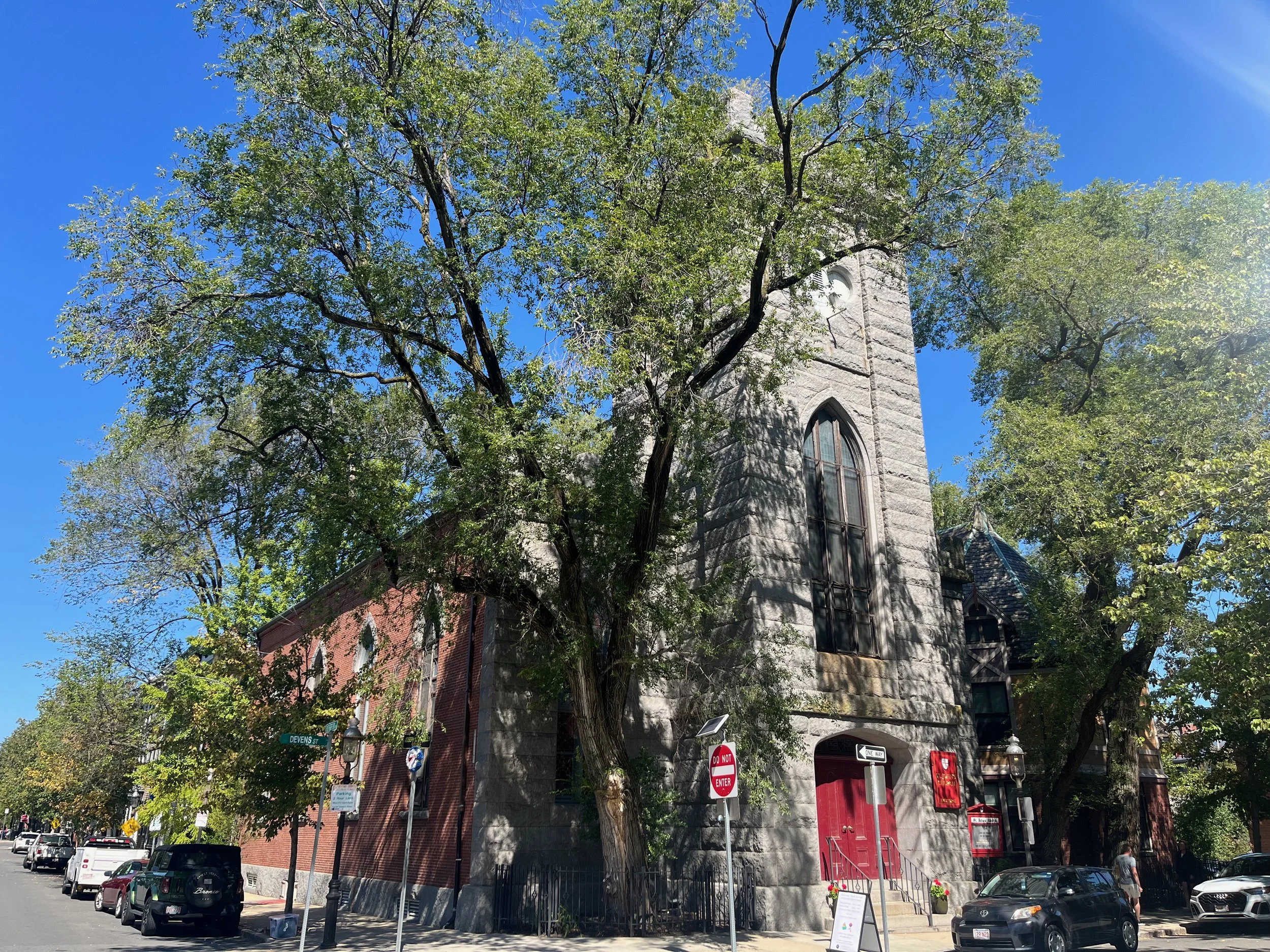“God is love, and those who abide in love abide in God, and God abides in them.”
1 John 4:16
In a world full of loneliness, division, and fear, we gather to practice love.
We are a community of individuals and families; of all generations and all walks of life; of life-long Episcopalians, Christians from other traditions, and people who are just seeking something more in their lives. Together, we give thanks for God’s unconditional love for us, and seek to learn and grow as we walk in the way of that love in the world.
Whoever you are, whatever you’re looking for, we invite you to join us on this journey.
Sunday Worship
10am – Holy Eucharist in the Church or Online
FAQs
Kids: Nursery care for young children is available year round. Classes for elementary and middle-school kids meet during the school year. Children of any age are always welcome in worship, as well!
What to Wear: People tend to dress comfortably and casually; you’re just as likely to see jeans as a jacket and tie.
Parking: Resident parking does not apply on Sundays, so any space on the surrounding streets is available, although on-street parking is limited.
Children’s Formation
Sundays at 9:45am
during the School Year
Our nursery for infants and toddlers (6 months and older) is open year round, and always staffed with a caregiver.
Older children meet in two separate classes on Sunday mornings during the school year, and a high-school youth group meets monthly.
Welcome to Saint John’s
My name’s Greg Johnston, and I’m the Rector of Saint John’s Episcopal Church here in Charlestown. On behalf of our whole community, welcome to Saint John’s.
We’re a group of people who are united by the desire to go deeper in our lives: to reflect on and share our gratitude for the love that God has shown us, and to bring that love into the world around us as we try to love our neighbors as ourselves. Our church members range from infants and little kids to people in their eighties and nineties, and everything in between. Some of us come to church with families, some with friends, and some of us alone. Some of us are new to the neighborhood, and some have been here for years. But everyone who walks through these doors has a place to belong in this community.
We hope that you’ll visit us on a Sunday morning for worship. Or you can be in touch with me to learn more about the church. But whoever you are, and wherever you are on your journey with God, know that you are loved, and you are welcome here.
The Rev. Greg Johnston, Rector
Community Clothes Closet
The Clothes Closet is operated by Charlestown Community Cares and hosted at St. John’s. It accepts donations of new and gently-used clothing and some household goods, and distributes them to neighbors at free “shopping” days.
Donations are accepted Tuesdays 11am–1:00pm, and Thursdays 5:30pm–7:30pm. Shopping days take place once a month on Saturdays, usually on the second Saturday of the month, from 2–4pm.
You can follow Charlestown Community Cares for more information.
Contact Us
27 Devens Street
Charlestown, MA 02129
(617) 242-1272
Office Hours
Tuesdays and Thursdays
9am - 3pm
Worship
Sundays at 10am













